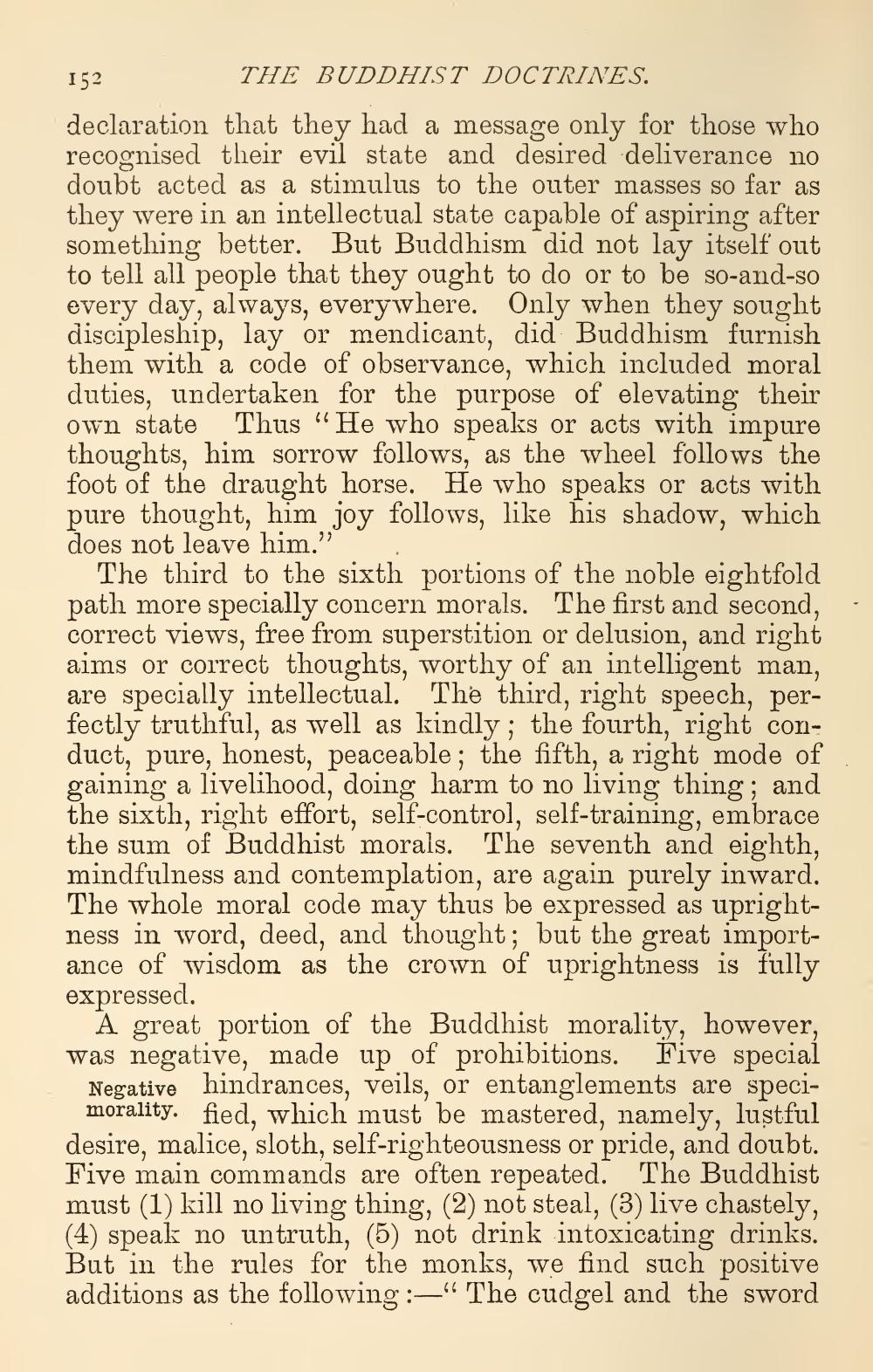________________
THE BUDDHIST DOCTRINES.
declaration that they had a message only for those who recognised their evil state and desired deliverance no doubt acted as a stimulus to the outer masses so far as they were in an intellectual state capable of aspiring after something better. But Buddhism did not lay itself out to tell all people that they ought to do or to be so-and-so every day, always, everywhere. Only when they sought discipleship, lay or mendicant, did Buddhism furnish them with a code of observance, which included moral duties, undertaken for the purpose of elevating their own state Thus "He who speaks or acts with impure thoughts, him sorrow follows, as the wheel follows the foot of the draught horse. He who speaks or acts with pure thought, him joy follows, like his shadow, which does not leave him."
152
The third to the sixth portions of the noble eightfold path more specially concern morals. The first and second, correct views, free from superstition or delusion, and right aims or correct thoughts, worthy of an intelligent man, are specially intellectual. The third, right speech, perfectly truthful, as well as kindly; the fourth, right conduct, pure, honest, peaceable; the fifth, a right mode of gaining a livelihood, doing harm to no living thing; and the sixth, right effort, self-control, self-training, embrace the sum of Buddhist morals. The seventh and eighth, mindfulness and contemplation, are again purely inward. The whole moral code may thus be expressed as uprightness in word, deed, and thought; but the great importance of wisdom as the crown of uprightness is fully expressed.
A great portion of the Buddhist morality, however, was negative, made up of prohibitions. Five special Negative hindrances, veils, or entanglements are specimorality. fied, which must be mastered, namely, lustful desire, malice, sloth, self-righteousness or pride, and doubt. Five main commands are often repeated. The Buddhist must (1) kill no living thing, (2) not steal, (3) live chastely, (4) speak no untruth, (5) not drink intoxicating drinks. But in the rules for the monks, we find such positive additions as the following:-" The cudgel and the sword




